Last Updated: 07/05/2025
Can Humans Get Fleas from Dogs?
Wondering whether you can get flea from your dog? Find out all you need to know in our Vet-written article.
Author: Dr Michelle Wong BVSc
Reading Time: 26 minutes - medium read
Fleas, those minuscule yet bothersome parasites, often bring to mind images of our beloved pets. The association between fleas and furry companions is well-established, but what about us, the humans in the equation? Can these pesky critters make a leap from our dogs and settle onto us?
Understanding the dynamics of fleas, their preferences, and their behaviour towards humans is crucial in unraveling this aspect of our interaction with these bloodsucking pests. Let's delve into the intricate world of fleas to decipher whether humans can indeed get fleas from their canine companions.
Skip to a section:
2. Handling Flea Infestations at Home: Cleaning, Vacuuming, and Insecticide Usage
Introduction to fleas

Fleas are wingless parasites that feed on blood and can cause itchy skin irritation, and an infestation can be an absolute nuisance in your household. Although these tiny biting insects do not have wings, they are excellent jumpers, able to leap up to 13 inches to attack a new host.
Types of Fleas
There are 88 species of fleas in Australia, but luckily only a few main species that commonly affect our pets and occasionally humans too.

Cat flea (Ctenocephalides felis)

Dog flea (Ctenocephalides canis)

Human or house flea (Pulex irritans)
The cat flea is the most common species which can attack both cats and dogs, as well as rats and humans. The dog flea can affect a wide range of mammals, and the human flea also feeds on dogs, rodents and pigs. The human flea is very uncommon.
Preferred Flea Hosts
Fleas have a much higher preference for hosts with fur and feathers, as these traits allow them to live and reproduce successfully. Thick hair offers shelter for adult fleas and they can safely lay eggs within this dense protection. The flea eggs may then be transferred to your pet's bedding and blankets, or even your own bed or sofa if your pet spends time lying there as well.
Adult fleas may occasionally jump onto humans to feed, causing tiny red bumps to form on the skin within half an hour, which can be extremely itchy. Common areas for flea bites are legs and feet. Some people may experience a hypersensitivity reaction.
Risks and Health Dangers Posed by Fleas
Flea bites can trigger allergic reactions, called 'flea allergy dermatitis', which is due to a sensitivity to the flea saliva. Symptoms include severe itchiness, skin irritation, and hives. Bites may be susceptible to secondary infections, especially when there is constant, frequent scratching.
In other parts of the world, the flea has been known to be a carrier for the bubonic plague and typhus disease. Fleas in Australia may carry tapeworm or transmit Rickettsia felis, also known as flea-borne spotted fever or cat-flea typhus, which can cause fever, fatigue, headache and skin rash in humans.
The flea tapeworm, Dipylidium caninum, can infect you or your pet if a flea is accidentally ingested. This can happen to animals as they bite and chew at their itchy skin. This tapeworm will attach itself to the small intestines in a dog or cat, absorbing nutrients to grow and eventually shed egg sacs from the tail end of its body. These sacs or segments look similar to a small grain of rice and may appear on your pets anus or in their stools. Protect your pet with regular tapeworm prevention. If you are concerned about yourself or children, please seek advice from a medical professional.
For more information about tapeworm, read through Tapeworm in Dogs.
All-inclusive worming products
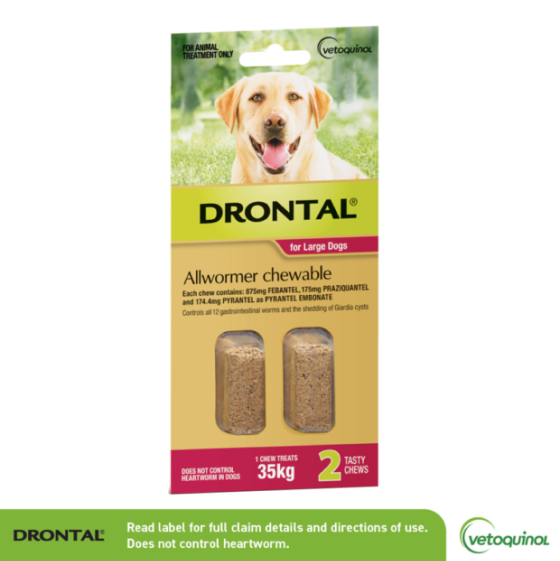
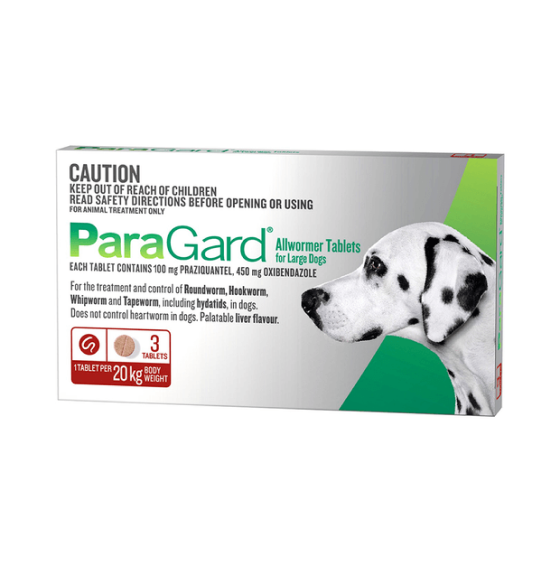
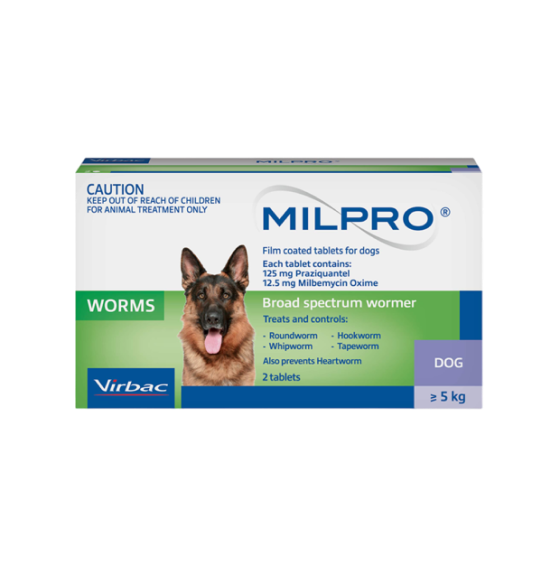
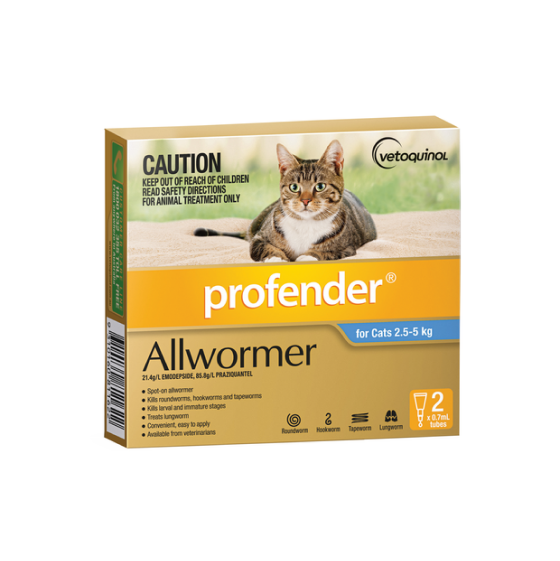
Managing Flea Infestations
Treating Pets for Fleas: Vet-Recommended Approach
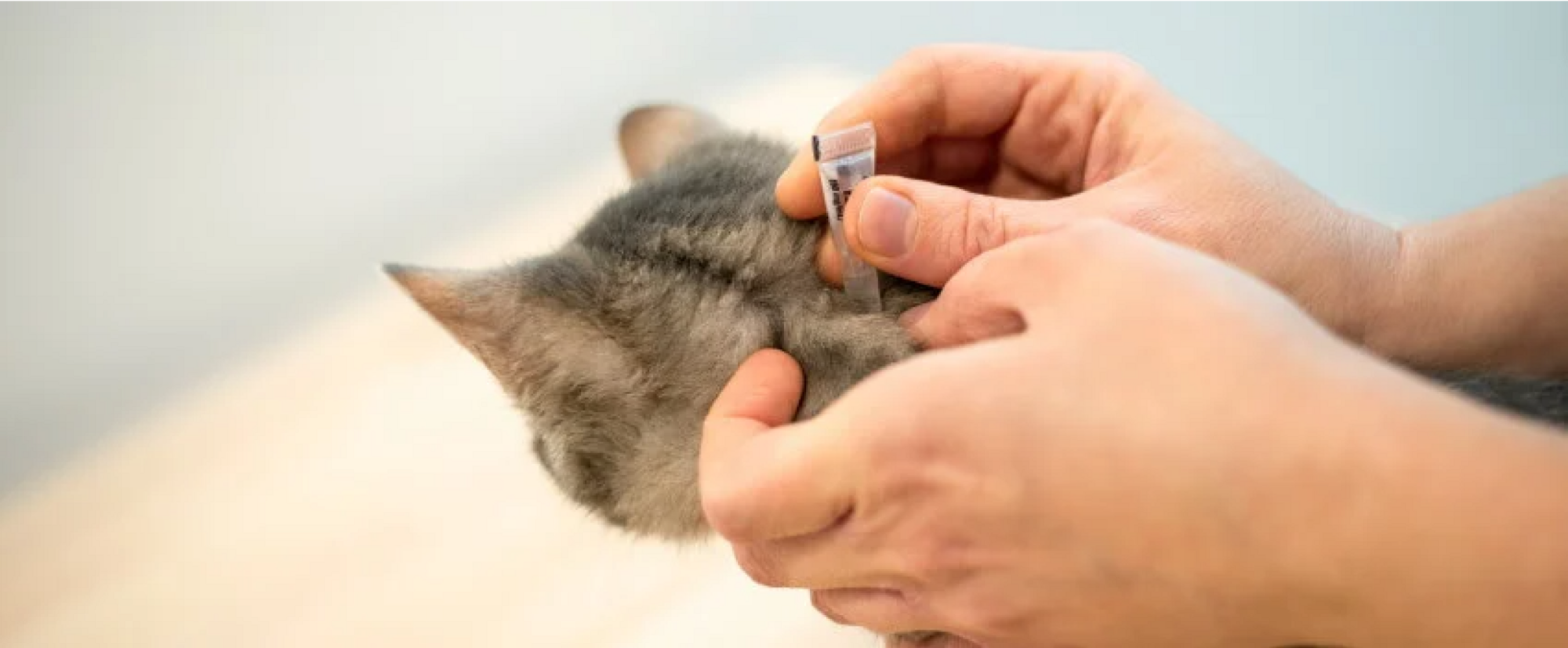
Long lasting flea treatments are the most effective way to kill fleas and break the flea lifecycle within your home. These treatments work quickly to control fleas and will provide ongoing protection for a whole month or more, depending on the product. If you are suffering from a severe flea infestation in your household, you may also wish to use Capstar for an immediate reduction of adult fleas. Capstar tablets effectively kill adult fleas within half an hour, however, they do not affect the rest of the flea population and do not provide continuous protection.
Be sure to treat every pet in the household to ensure control of the flea infestation and prevent re-infestation. If you only treat your dog after spotting fleas in their coat, but your cat roams outside, they could bring more fleas into the house which can then reproduce. Pupae can survive for many months before hatching into an adult flea and hopping straight back onto your dog! Ongoing treatment for all pets is the most effective method to manage fleas.
Flea treatment and prevention
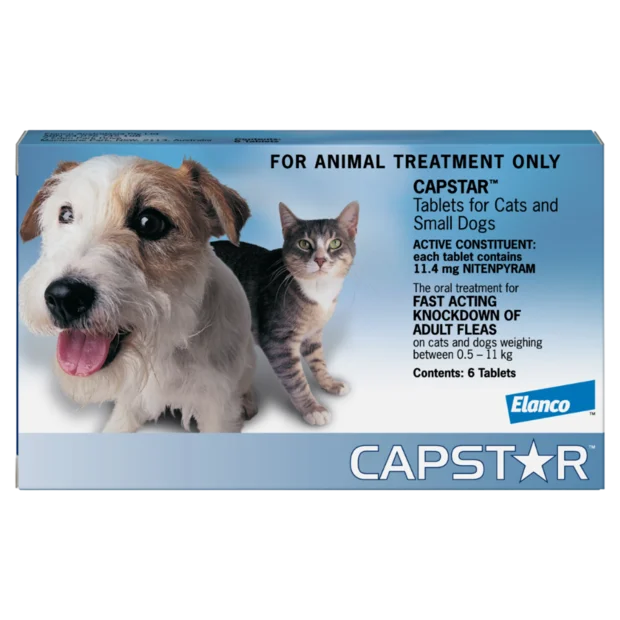
Small tablet for fast acting knock down of fleas, within half an hour. Best combined with long term preventative for complete flea control.
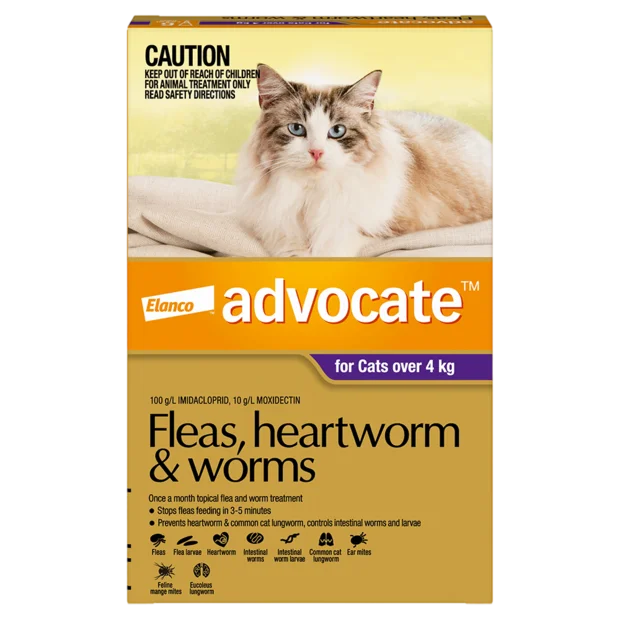
Kills adult and larval fleas within 20 minutes of contact. Treatment lasts for one month.
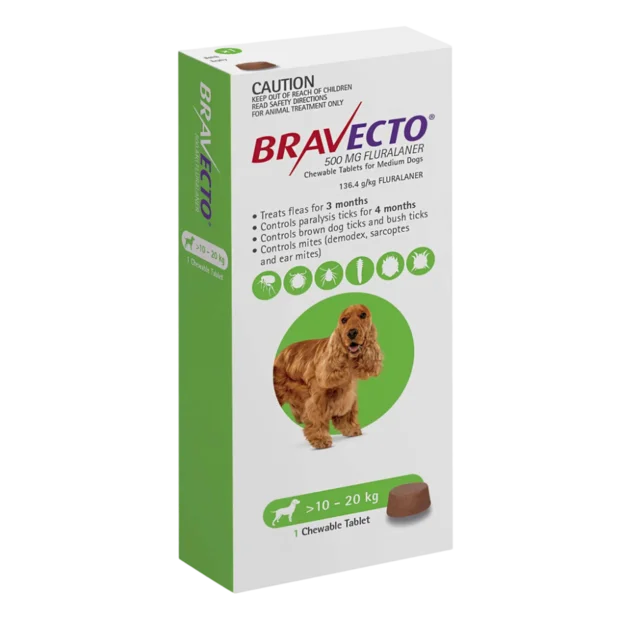
Effective control in 8 hours and continued efficacy for 3 months. Tick control included.
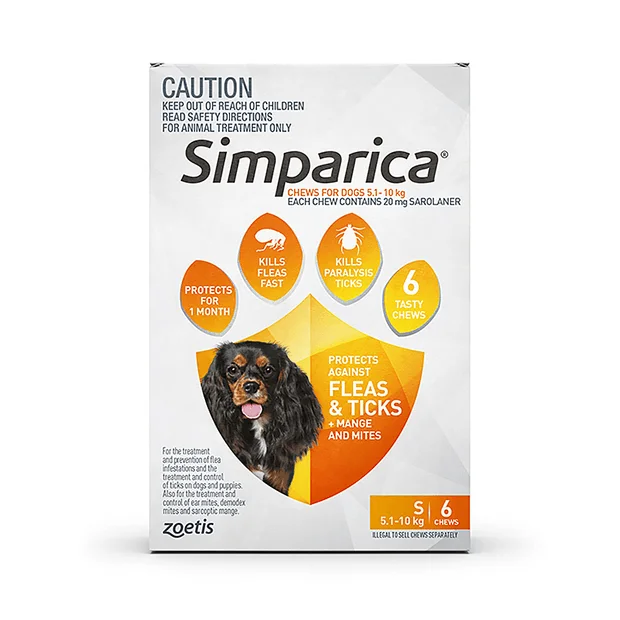
Kills fleas in 4 -8 hours, lasts for one month and provides protection against paralysis ticks.
Handling Flea Infestations at Home: Cleaning, Vacuuming, and Insecticide Usage

Multiple stages of the flea life cycle occur in the environment: flea eggs drop off the pet and into the bedding, larvae burrow deep inside the fabrics where they will eventually form a cocoon, entering the pupal stage. As soon as the adult flea emerges from a pupae, they are ready to hop onto a nearby host and start feeding.
Deep clean your house by vacuuming and washing pet bedding, blankets, towels on a frequent basis using hot water (60°) and washing detergent. Sprays and flea bombs can be helpful as they can penetrate through the cracks and crevices of the house to kill any hidden fleas there. Always check the product label and follow the manufacturer's instructions on how to use it correctly, removing pets and electrical appliances as required to prevent toxicity and fire hazards.
Preventive Measures: Regular Pet Checks and Maintaining a Hygienic Living Environment

Apart from regular flea prevention, you can check your pet's coat from time to time for any fleas, especially during the warm summer months when fleas and ticks are particularly active. Adult fleas may be spotted moving in the fur, or you may notice flea droppings instead. These appear like specks of dirt on the hair, hence the term "flea dirt", and when rubbed or dampened will change colour to reddish-brown due to digested blood. A simple test you can do at home is to place the suspicious specks onto a wet paper towel to check whether your pet has fleas or just needs a bath.
Flea combs can be used regularly to help detect the presence of fleas and brush out the flea dirt. Regular baths could help to remove fleas as well as other debris from their coats.
Find out more in How to Tell if Your Dog Has Fleas.
Flea checking aids and shampoo
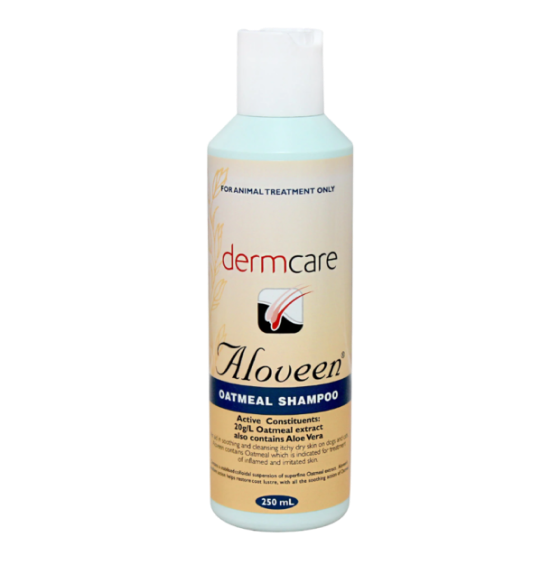
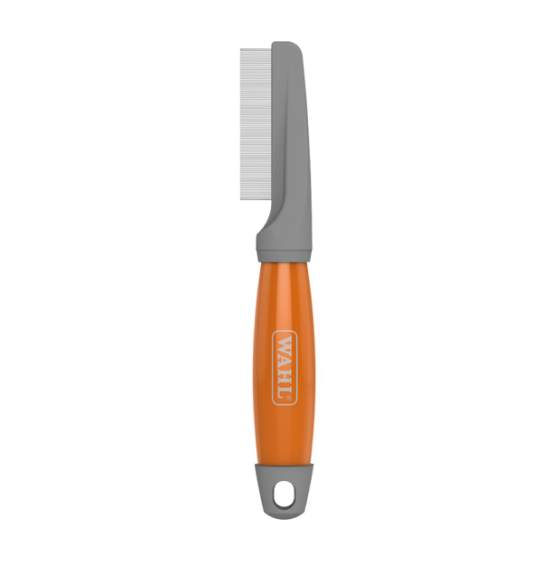
Summary

Things to remember:

Humans can occasionally be affected by fleas, but fleas prefer hosts with thick hairs (aka your cat or dog) to hide and reproduce

Regular flea prevention is required for all pets

Routine worming is recommended as fleas can carry tapeworms

Stay vigilant with hygiene checks on your pet's coat and maintain cleanliness (baths, wash bedding and blankets)

Seek medical advice for irritating skin rashes, dermatitis, and suspected allergic reactions
Further Reading
Want to know more? Check out our Discover Page for more tips from our expert vets on keeping your pets happy and healthy.